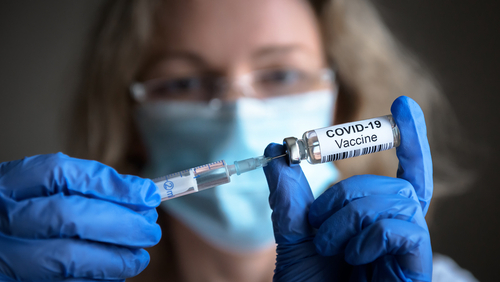NEW YORK (Washington Insider Magazine) – Research released on Tuesday may provide fresh insights into the origin of extended Covid-19 effects, as well as treatment methods.
According to NBC NEWS, a tiny 17-person study led by doctors from the National Institutes of Health and Massachusetts General Hospital evaluated the various symptoms associated with extended Covid and discovered that they may be influenced in part by long-term nerve damage.
The study was directed by Anne Louise Oaklander, an assistant professor of neuroscience at Harvard University, and ran from 2020 to 2021. She emphasized, although, these are all preliminary findings from a tiny and skewed data set, as the individuals her team analyzed had previously been diagnosed with a neurological disorder by their doctors.
Nonetheless, the findings of the study might help researchers move a step closer to figuring out what causes extended Covid, a term defined by the World Health Organization as “a constellation of long-term symptoms that some people experience after they have had Covid-19”
Peripheral neuropathy was discovered in 59 percent of the 17 individuals evaluated, or 10 persons, according to the results. Peripheral neuropathy is a neurological condition that refers to impairment to the nerves that link the brain to the outside environment. Weakness, discomfort in the hands and feet, and weariness are also common symptoms, as are sensory abnormalities.
Finding a relationship between several common long-term Covid symptoms—difficulty going through regular tasks, fast heart rate faintness, difficulty breathing, chronic pain, cognitive issues, muscular weakness, and sensory impairments be a tiny step toward discovering therapy alternatives.
Peripheral neuropathy is a medical diagnosis that may be given by a doctor and for which there are treatments available. Long Covid, on the other hand, remains a mystery, and medical knowledge of it is continually evolving. It can’t be diagnosed technically just now.
Oaklander expressed her hope that the new study may help professionals better understand extended Covid.
Dr. Fernando Carnavali, director of Mount Sinai Hospital’s Center for Post-Covid Care in New York City, sees the study as a small part of the great number of studies being done to discover solutions for long-term Covid patients.
He was afraid, though, that the study would instill false optimism. While some of the patients in the research may have a neurological relationship, he believes that it would not be a diagnosis that suits everyone. Carnavali noted that many of the 100 long-distance Covid patients he had seen had apparently seen 2 to 3 neurologists before coming to see him.
Because so many people are yearning for an explanation, he says it’s better not to jump to any conclusions.
Oaklander urged caution, saying that she and fellow scientists and researchers had simply hypothesized a link between small-fiber neuropathy and Covid, stressing that this did not imply causation.


























